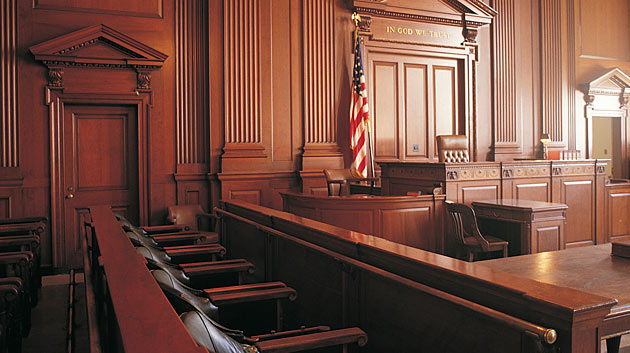Disorderly Conduct — Moral Turpitude — Commonwealth Court Decides
April 11, 2019 Leave a comment
Today the Commonwealth Court issues another remarkable decision involving a Pennsylvania medical professional. Dunagan v. BPOA, 2019 WL 155879, is the third case in a row in which a Commonwealth Court panel has found a Pennsylvania medical related board engaged in an erroneous interpretation of the law and abuses its discretion.
In 2015, Dunagan was arrested and charged with three Drug Act violations and one Disorderly Conduct offense. The charges stem from a police investigation that revealed Dunagan possessed a small amount of drugs and drug contraband. The Disorderly Conduct offense is based upon Dunagan’s behavior during the search warrant execution. Dunagan’s criminal defense attorney negotiated dismissal of the Drug Act offenses and a guilty plea to the Disorderly Conduct offense. This is a great legal tactic. A medical professional who pleads guilty to a Drug Act violation is subject to an automatic one year license suspension and forced PHMP/DMU enrollment. Dunagan’s plea avoided this result.
Dunagan properly reported her arrest to the BPOA. Observing Drug Act offenses, a Nursing Board prosecutor filed an Order to Show seeking discipline Dunagan for her misdemeanor Disorderly Conduct guilty plea. Ordinarily, Disorderly Conduct – charged either as summary offense or a misdemeanor – is not a trigger for disciplinary action. However, the Board prosecutor, with the support of his supervisors as a policy decision, subversively sought to discipline Dunagan for her drug related criminal conduct – not really the Disorderly Conduct offense to which she plead guilty. This is outrageous.
Before the hearing examiner and Nursing Board, the prosecutor argues discipline should be based all facts of the criminal charges, not just the Disorderly Conduct behavior. This is more facts than those essential elements of the Disorderly Conduct offense. The prosecutor also maintains the facts giving rise to Dunagan’s guilty plea constitutes “a crime of moral turpitude” to which the Board may exercise its discretion and discipline Dunagan as it wishes.
The Hearing Examiner, rejecting this position, rules Disorderly Conduct is not a crime of moral turpitude and dismisses the Order to Show Cause. The Board rejects the Hearing Officer’s Proposed Adjudication, finding Dunagan’s tumultuous behavior in the execution of a search warrant is a crime of moral turpitude. The Board suspends Dunagan’s license for six months.
Obviously the decision is based upon the drug offenses that were dismissed and to which the Board could NOT force Dungan into the DMU/PHMP or automatically suspend her license under the Drug Act and CHIRA.
Dunagan appeals. The Commonwealth Court reverses the Nursing Board decision. The appellate court reviews much case law and facts and concludes Dunagan’s conduct resulting in a Disorderly Conduct guilty plea cannot and does not constitute moral turpitude. The Court states
“A determination of whether a crime involves moral turpitude will be determined based solely upon the elements of the crime. The underlying facts or details of an individual criminal charge, indictment or conviction are not relevant to the issue of moral turpitude.” 22 Pa. Code § 237.9(b); see also Startzel v. Department of Education, 562 A.2d 1005, 1007 (Pa. Cmwlth. 1989) (“Determination of whether a crime involves moral turpitude turns on the elements of the crime, not on an independent examination of the details of the behavior underlying the crime.”).
The Court rules a six month professional license suspension is 1) an abuse of discretion, 2) a guilty plea to a Disorderly Conduct offense is neither a crime of moral turpitude nor a basis to suspend or revoke a professional licensees license, and 3) citing her need to earn a living and work – that the case facts are not health related — there is no justifiable necessity to protect the public from her conduct.
This case reveals the extreme prosecutorial environment in which all Pennsylvania licensees now practice. Medical marijuana is the prime influencer of this case. Many Drug Act possessory offenses result in either original charges of Disorderly Conduct or evolve into a guilty plea to a Disorderly Conduct offense. A summary Disorderly Conduct offense is not a conviction under the Drug Act. As a result, Pennsylvania’s health related boards are not able to automatically suspend a license or commence disciplinary process predicated on a drug possessory offense.
BPOA prosecutors tried to secure Commonwealth Court case law stating a summary offense, whether a crime of moral turpitude or not, is a valid discretionary basis to suspend and discipline a medical related board licensees license. The Commonwealth Court said no.
More importantly, at the Board hearing the attorney did not properly protect the record. I have written that factual allegations contained in an Order to Show Cause can only be those related to the criminal convicted charges, not allegations that are dropped or dismissed. Facts related to dismissed, withdrawn, or not guilty charges are not relevant or admissible in any disciplinary prosecution.
This attorney did not object to a whole set of irrelevant and inadmissible facts. Or the licensee simply testified about everything that happened on the date and time of her arrest. This placed those facts in the record for the Nursing Board to consider. It did consider the entire case facts, knew the case was about drugs, and suspended her license. Both the legal strategy and Board conduct was improper. Call me to discuss your case.


